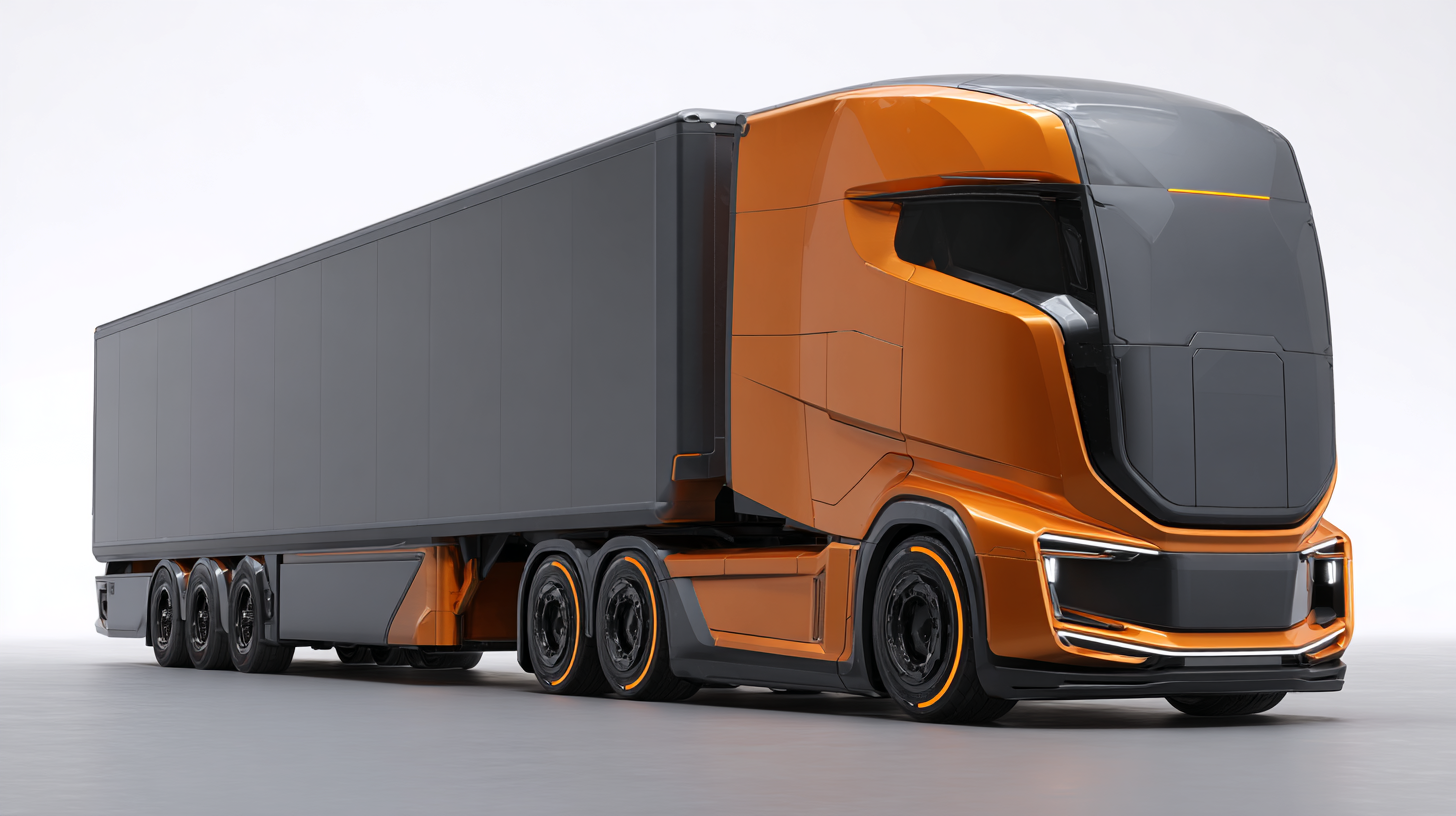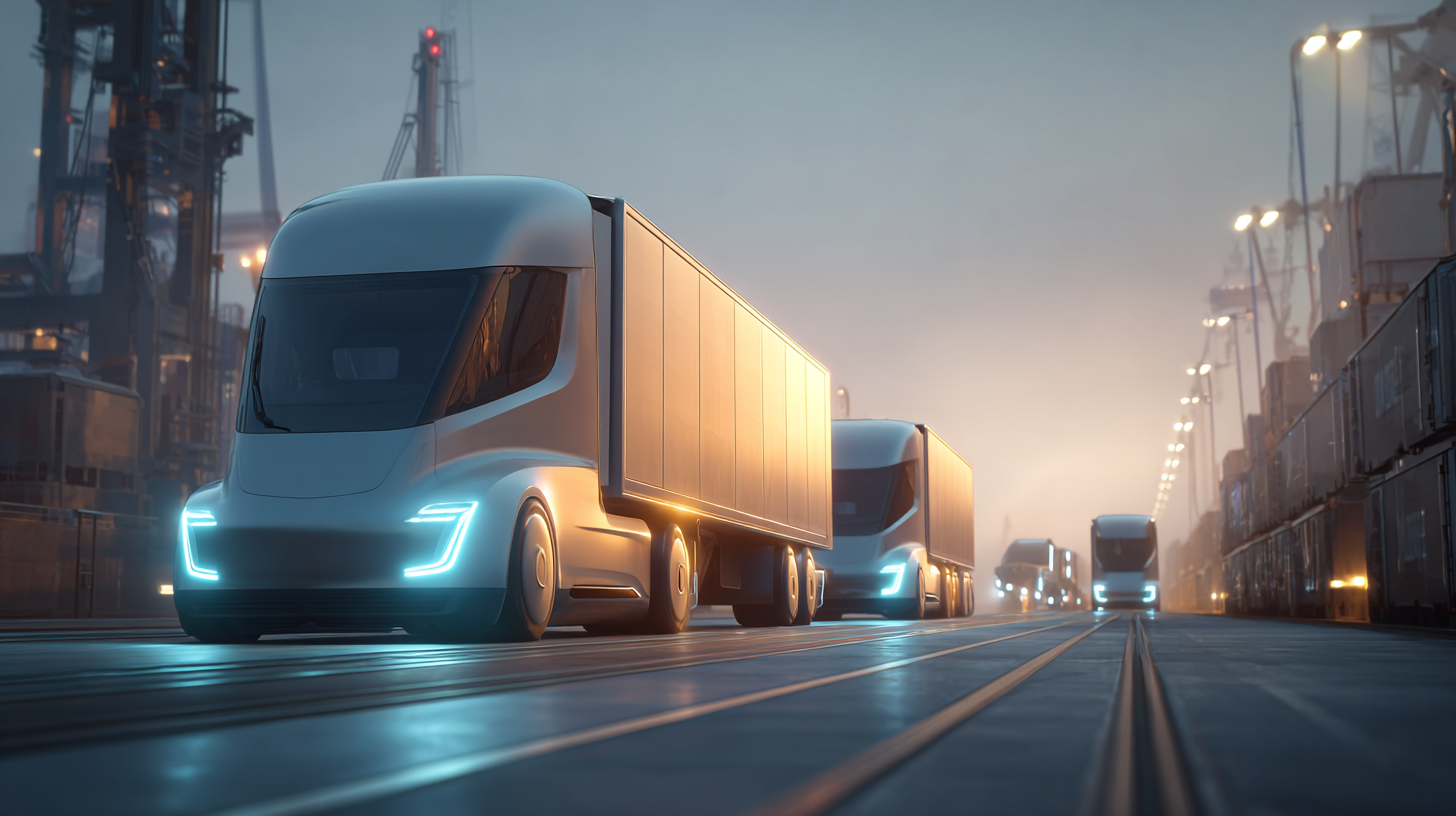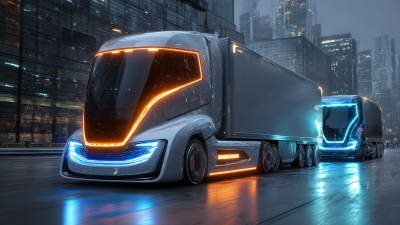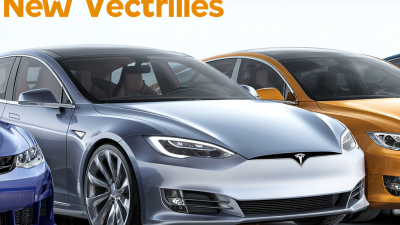Sorry. We did not find anything.
The Future of Transportation Exploring the Rise of Electric Trucks
As we stand on the cusp of a new era in transportation, the rise of Electric Trucks is reshaping the logistics and freight industries. With growing concerns over environmental sustainability, fuel emissions, and the global push towards greener alternatives, Electric Trucks offer a transformative solution that marries efficiency with ecological responsibility. This technological advancement not only provides a pathway to reduce the carbon footprint associated with traditional diesel trucks but also promises enhanced operational cost savings for businesses. As manufacturers innovate to improve battery life and charging infrastructure, the adoption of Electric Trucks is set to redefine transportation norms.

In this exploration of the future of transportation, we will delve into the key benefits, challenges, and potential of Electric Trucks, examining how they might revolutionize the way goods are moved across regions while ensuring a sustainable future.
The Shift Towards Sustainable Logistics: Embracing Electric Trucks
The logistics industry is undergoing a significant transformation as companies pivot towards more sustainable practices, with electric trucks leading the charge. According to a recent report from the International Council on Clean Transportation, the adoption of electric trucks could reduce greenhouse gas emissions by up to 80% compared to traditional diesel trucks. This shift not only reflects a growing awareness of environmental impact but also demonstrates a remarkable potential for cost efficiency, as electric vehicles typically have lower operating costs due to fewer moving parts and reduced fuel expenses.
Moreover, a study by Bloomberg New Energy Finance predicts that by 2040, electric trucks will make up 67% of the global medium-duty and heavy-duty vehicle sales. Companies such as Amazon and Walmart are already investing heavily in electric fleets, which not only enhances their sustainability credentials but also aligns with changing consumer expectations. As more businesses embrace electric trucks, we can expect a ripple effect throughout the logistics sector, encouraging innovation and further advancements in battery technology and charging infrastructure, ultimately leading to a cleaner, more efficient transportation network.

Technological Innovations Driving Electric Truck Development
The emergence of electric trucks represents a significant shift in the transportation industry, primarily driven by innovative technologies that enhance efficiency and sustainability. Advances in battery technology, such as solid-state batteries and fast-charging systems, have considerably increased the range and performance of electric trucks. These developments reduce downtime and make electric vehicles more viable for long-haul operations, addressing the concerns of logistics companies that rely on consistent delivery schedules.
Additionally, the integration of artificial intelligence and smart logistics systems plays a crucial role in optimizing the performance of electric trucks. AI-driven software can analyze routes, traffic patterns, and load capacities to maximize efficiency and minimize energy consumption. With real-time data, fleet managers can make informed decisions, leading to reduced operating costs and improved environmental impact. As these technological innovations continue to evolve, they promise to reshape the future of freight transportation, making electric trucks a practical and sustainable choice for the industry.
Economic Impacts of Transitioning to Electric Freight Solutions
The transition to electric trucks in freight transportation is set to revolutionize the logistics sector, offering significant economic impacts. As the demand for sustainable solutions grows, businesses are recognizing that electric trucks can reduce operational costs through lower fuel expenses and reduced maintenance requirements. Additionally, government incentives aimed at promoting electric vehicle adoption further enhance the financial viability of transitioning to electric freight solutions.
Tips: For companies considering this shift, start by evaluating current fleet performance and costs, and explore available incentives. Partnering with electric vehicle manufacturers can also provide access to tailored financial models that highlight long-term savings.
Moreover, the shift to electric trucks can foster job creation in the green technology sector, balancing the economic landscape. By investing in electric vehicle infrastructure, businesses help stimulate local economies while contributing to an overall reduction in carbon emissions. The future of transportation not only looks green but promises to reshape economic dynamics in the freight industry.
Tips: Engage employees in training programs related to electric truck operations to facilitate a smooth transition. Communication about the benefits of this change can also boost morale and foster a culture of sustainability.

Infrastructure Challenges and Opportunities for Electric Truck Adoption
The rise of electric trucks is transforming the transportation landscape, yet significant infrastructure challenges must be addressed to facilitate their widespread adoption. One of the foremost obstacles is the lack of an extensive charging network capable of supporting heavy-duty electric vehicles. Unlike passenger electric vehicles, trucks require high-capacity chargers that can deliver faster charging times to minimize downtime during long-haul journeys. This necessitates strategic planning by authorities and private sectors to establish charging stations at key logistics hubs and along major freight routes.
In addition to charging infrastructure, the transition to electric trucks brings opportunities for innovation in energy distribution and management. Implementing smart grids can optimize charging schedules and help balance energy demand, particularly during peak hours. Moreover, companies may explore partnerships with renewable energy providers to create sustainable charging solutions that not only reduce carbon emissions but also stabilize energy costs over time. By overcoming these infrastructure challenges and leveraging emerging technologies, the future of electric trucks holds the potential not only to enhance delivery efficiency but also to contribute to a greener and more sustainable transportation ecosystem.
The Future of Transportation: Exploring the Rise of Electric Trucks - Infrastructure Challenges and Opportunities for Electric Truck Adoption
| Parameter | Current Status | Projected Growth (2025) | Challenges | Opportunities |
|---|---|---|---|---|
| Market Adoption Rate | 5% | 20% | Limited charging infrastructure | Government incentives |
| Charging Stations | 5000 | 15000 | Cost of installation | Growing EV charging networks |
| Total Electric Truck Sales | 2000 units | 10000 units | Higher upfront costs | Rising fuel prices |
| Battery Technology | Lithium-Ion | Solid-State expected | Development costs | Technological advancements |
Regulatory Framework Supporting the Rise of Electric Transportation
The rise of electric trucks is profoundly influenced by the evolving regulatory framework that supports sustainable transportation. Governments worldwide are acknowledging the critical need to reduce carbon emissions, leading to the establishment of policies aimed at promoting electric vehicles. This includes tax incentives, grants for research and development, and stringent emissions regulations that encourage companies to transition from traditional diesel trucks to electric models. Such regulations not only help in reducing the environmental impact but also stimulate innovation within the automotive industry.
Moreover, collaboration between public and private sectors is essential in creating a supportive infrastructure. The development of charging stations across major highways and urban areas is largely driven by regulatory initiatives that facilitate investment in electric vehicle infrastructure. Additionally, local governments are implementing zero-emission zones and rewarding companies using electric trucks through reduced tolls and parking fees. As these policies evolve, they will play a critical role in shaping the future landscape of transportation, making electric trucks a viable and appealing option for logistics and supply chain operations.
Related Posts
-

Future Innovations in Best Electric Trucks Post 2025 Analysis of Emerging Technologies
-

Electric Trucks Versus Traditional Trucks A Comprehensive Comparison Guide
-

5 Compelling Reasons to Choose Ev Pickup for Your Sustainable Business Solutions
-

5 Essential Tips for Choosing the Best New Electric Vehicles
-

Future of Electric Commercial Trucks at the 138th China Import and Export Fair in 2025
-

How to Choose the Best All Electric Car for Your Lifestyle
